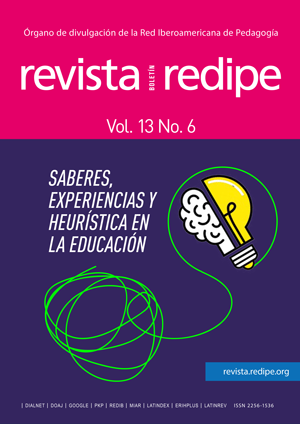Historical consciousness and image: Education through virtuality
Main Article Content
Keywords
Historical consciousness, Virtual interaction, Image, Education, Cybernetics, Subjectivities
Abstract
Historical consciousness, from the theoretical conception of complexity in Hugo Zemelman, is much more than the memory of past events or an activity of rethinking events; it is the dimension that the human being has of appropriating himself, being the maker of his time and history, assuming himself as a fundamental part of his historical process, who not only sits to see the facts, but is also a transforming agent. Having said this, the development of virtual mediations has had a high impact on the professional and personal development of human beings, becoming a fundamental part of daily life. Hence, the fundamental question is: How do virtual mediations impact the historical consciousness of students in Colombia? Does the use of technological and virtual mediation alter education epistemologically? Based on the above, a research project was proposed, the germ of this article, which seeks to unveil the impacts of virtual mediations on the pedagogical task and from there on the historical consciousness of Colombian students of higher education in Colombia.
References
HINE, Christine. (2000) “Etnografia Virtual”. Editorial SAGE PUBLICATIONS.
QUINTAR, Estela. (1998) “La enseñanza como puente para la vida”, Argentina, EDUCO, Universidad Nacional Comahue.
QUINTAR, Estela. (1998) “En Diálogo Epistemico – Didactico”, IPECAL.
WIENER Norbert (1988). “Cibernetica y Sociedad”. Editorial Sudamericana Buenos Aires.
ZEMELMAN, Hugo. (2002) “Necesidad de Conciencia”, España, Anthropos, coedición El Colegio de México.
-- (2007) “El Ángel de la historia”. UNAM, IPECAL Barcelona, Anthropos.
-- (2007) “Sociedad y Sujetos: El Análisis de Coyuntura y su dimensión Ética”, IPECAL.
-- (2002) “Pensar teórico y Pensar Epistémico: Los retos de las ciencias sociales Latinoamericanas”, IPECAL.
-- (2008) “Voluntad de Conocer: Sujeto y su pensamiento en el paradigma critico”, Anthropos.



